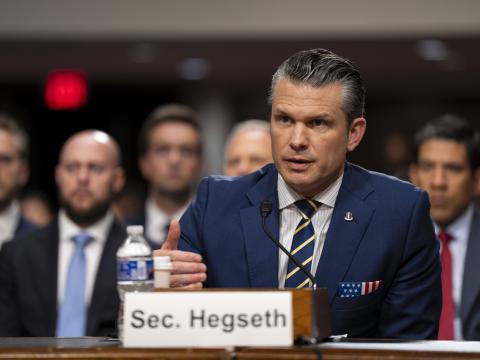Mission-Focused and Effective Conferences Always in Demand
Since the U.S. General Services Administration scandal over a training conference in Las Vegas, reinforced by concerns regarding two expensive Department of Veterans Affairs conferences, fear has spread across government and industry that government-related conferences are now a thing of the past. This is just not the case—nor should it be.
If government leaders make bad decisions with respect to conferences—or other areas within their job scope—they should be held accountable. Controls should be in place to minimize future abuses. Organizations that support government in conferences that recommend or support such abuses similarly should be penalized.
The May 11, 2012, memo from the Office of Management and Budget applying controls to travel and conferences clearly had two objectives. The first was to direct a management approval process for all federal agencies to ensure consistent review of proposed travel and conferences, along with adherence to policies. The second was to achieve spending reductions of 30 percent in travel and conference costs from fiscal year 2010 levels. Implementing guidance from federal agencies has reinforced these objectives, directing the leadership at every level to focus conferences on mission needs and to ensure government requirements are met at these conferences in a cost-effective way.
The AFCEA leadership has met with a number of senior government leaders to clarify the emerging policies and to understand how the association can help the government manage the process. The message has been clear and consistent: Government personnel need to conduct or attend conferences to communicate effectively among each other and with industry and academia. The requirement for effective communications is perhaps greater than ever in this period of constrained budgets to support effective development, acquisition and investment. Conferences must be focused in mission-critical areas and must support needed training and education.
To help with budget reduction, conferences should be planned in locations that will minimize travel requirements. Planning conferences near concentrations of government participants will benefit organizations. Holding conferences regionally or locally when possible will reduce long-distance travel and per diem costs. Because planners do not know whom the government will want to send to conferences, early coordination with the target agencies or commands will help in scheduling conferences in appropriate venues before contracts are signed.
Registration costs for government participants should be kept to a minimum. Government ethics regulations allow lower costs for government personnel, down to zero if appropriate. If no government registration is charged, attention must be given to the gift regulations for government to ensure that costs for food and other items provided to government attendees are recovered. Charging individually for meals is one way to cover such costs.
Maximizing the training and training credits provided at conferences is important. This is one area where advanced work with the government to define needs is crucial. Conferences are excellent venues in which to provide consistent training across government organizations. But training must be focused in mission-essential areas, and certifications or continuing education units need to be provided to document the training. AFCEA is particularly effective in conducting such training and providing needed credit. Any conference planner at the regional or chapter level who needs assistance with this effort should contact the AFCEA International staff, who can help with set-up or provide training support.
Networking opportunities at conferences are important because they provide the means for dialogue among government, industry and academia. It is important in planning to provide such opportunities, but it should not be excessive. Such networking events should be simple and cost-effective. In most cases, one or two such events during a conference are sufficient.
As many who have been involved with conferences know by now, the government approval process escalates based on total anticipated government cost. The three thresholds are below $100,000, $100,000 to $500,000, and above $500,000. For the Defense Department, anything above $500,000 must be approved by the deputy secretary of defense. The time required for approval will depend on the level of approval and the completeness of the approval package. The approval package must be submitted by the government lead for the conference or by someone determined to be the executive agent if it involves a joint government audience. If all the criteria are described fully in the approval package and seem reasonable to the approval authority, the process will move more quickly. Early coordination with the government and early submission of the approval package will help ensure that the approval comes in time.
Travel restrictions, educational requirements and dollar thresholds aside—the bottom line is that government personnel need to conduct or attend conferences that support mission requirements. We in AFCEA need to help them be compliant with the emerging policies so they can obtain maximum value from the conferences they attend.




Comments